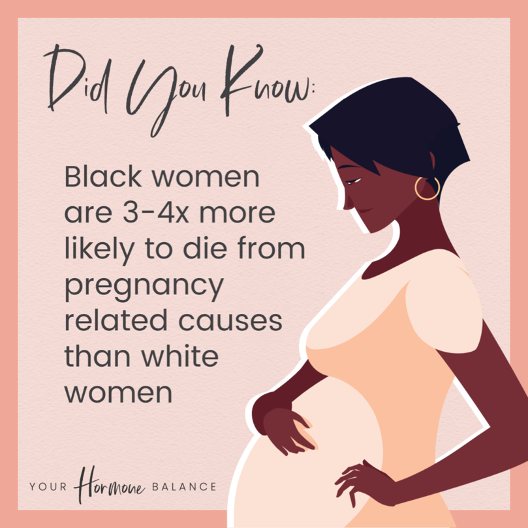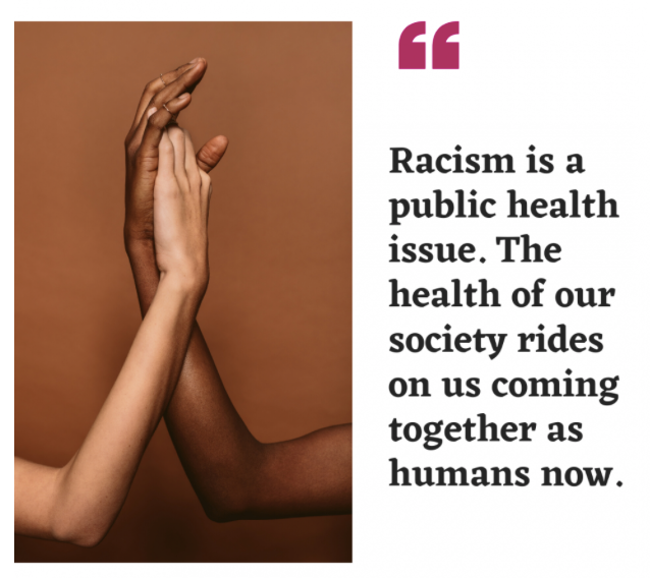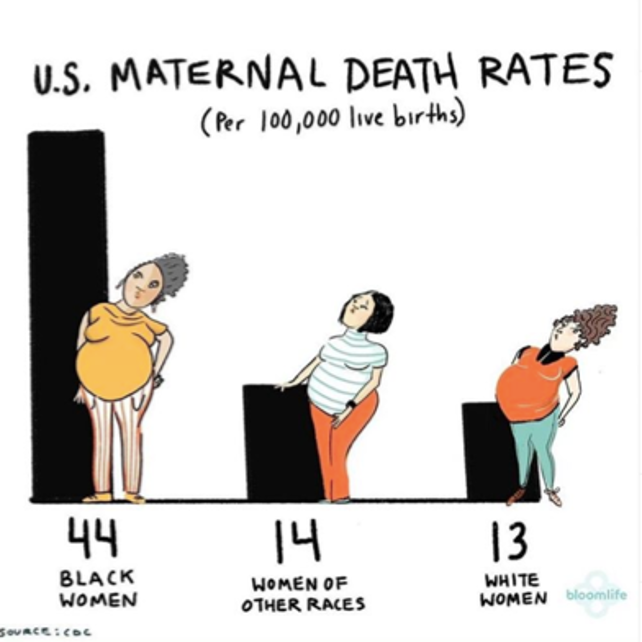
OUR COMMITMENT TO YOU
Here at YHB, we are committed to bringing light to inequalities within healthcare (of which there are too many), to encourage greater conversation and support for organizations involved with these issues, such as @blackmamasmatter, who are dedicated to advocating for Black maternal health, rights, and justice through changing policy, driving research and reframing the conversation.

THE NUMBERS DON’T LIE
The reality is THAT Black women are 3-4 times more likely to die during pregnancy compared to white women in the United States. And that's been true for at least the last 50 years. They are also three times more likely to have fibroids than white women (benign tumors fueled by excess estrogens that grow in the uterus and can cause postpartum hemorrhaging) and the fibroids occur at younger ages and grow more quickly.
And when it comes to conversations around stress, Black women experience what’s referred to as physical “weathering,” meaning their bodies age faster than white women’s due to exposure to chronic stress linked to socioeconomic disadvantages and discrimination over the course of their lives, thus making pregnancy riskier at an earlier age as well.

This is a public health and human rights emergency because it's been estimated that a significant portion of these deaths could be prevented. But there's a bigger problem. As Dr. Ana Langer, director of the Women and Health Initiative at the Harvard TH. Chan School of Public Health in Boston points out, "Black women are undervalued. They are not monitored as carefully as white women. When they do present with symptoms, they are often dismissed." She goes on to say that "It's important to illustrate what's happening and make the public aware because it can encourage the health establishment to take on this crisis much more seriously."
WE MUST DO OUR PART
It’s time for us all to pay closer attention to our role in these societal norms and to come together to be champions for change. We must ask questions like: “why is there a delay in women receiving diagnosis and treatment in conditions such as PCOS, endometriosis, and other fertility issues?” While also examining how treatment varies from white women to WOC, and questioning WHY. As a family business with a strong stance on getting to the ROOT of any imbalance, the same logic applies here.
THE BOTTOM LINE
"We need to do a better job of listening to Black women,” said National Partnership President Debra L. Ness. "We know that Black women are not receiving the health care or support they need to thrive before, during and after childbirth, and that is not acceptable. The National Partnership is proud to be a partner in the second annual Black Maternal Health Week campaign and pleased to see the current Congress take steps to work towards a solution to these startling health disparities."
“Black women deserve to have safe and healthy pregnancies and childbirth. To meaningfully improve Black maternal health outcomes, we need systemic change that starts with the health care system, improves access to care and makes the places Black women live and work healthier, more fair and more responsive to their needs. Only when we do that will Black women be able to achieve their optimal health and well-being throughout their lifespan, including if they choose to become parents.” ~Black Women's Maternal Health Issue Brief by National Partnership for Women & Families.
Help spread awareness around this issue by forwarding this newsletter on to family and friends, engaging with @blackmamasmatter, and donating if you can here.
Visit BMMA’s website to learn more about the work Black-women-led organizations are doing to push for reproductive justice and birth justice.
As practitioners with a public platform, it is our DUTY to educate and provide a space for ALL people to come and feel supported and to have access to the quality of care they deserve. We will continue to shed light on issues of inequality in health-care (ways to get educated & involved) within our newsletters and via instagram @yourhormonebalance. We welcome your feedback in the comments below!
Have a question you’d like answered in a future blog post? Email us at info@yourhormonebalance.com
Interested in testing your hormone levels and getting started on an all-natural rebalancing plan? Check out our at-home hormone testing + consulting packages HERE.
